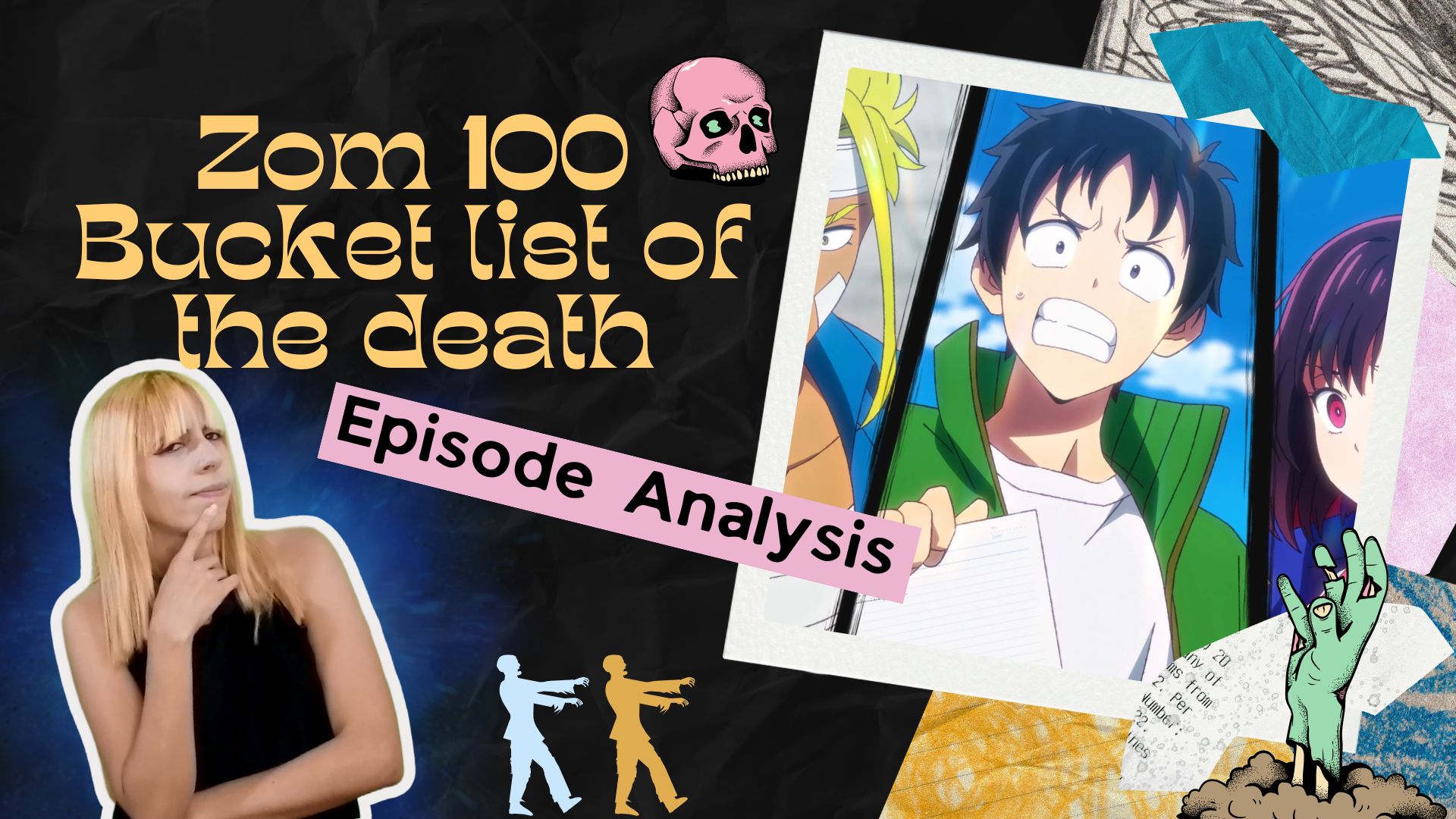
(Portada diseñada por mi en el editor de Canva)
Cover designed by me in canva editor
A while ago I brought you the review of this wonderful anime that has me hooked (even though, as I've told you, I don't usually watch anime series, only movies) but the fact is that there were too many things that attracted me to this series: the aesthetics, the theme and above all the plot, in fact here below I will leave you a link to my previous review so you can understand what it's about and can get more information about the entire anime in general, since in this post I would like to focus especially on episode 7 to do an in-depth analysis, because I find it quite interesting and worthy of taking into account. >Hace tiempo traje para ustedes la review de este maravilloso anime que me tiene enganchada (a pesar de que, como yo les he dicho a ustedes, no suelo ver series de anime, sino solo películas) pero el caso es que fueron demasiadas las cosas que me atrajeron de esta serie: la estética, la temática y sobre todo el argumento, de hecho aquí debajo les dejaré un enlace con mi anterior review para que puedan comprender de qué se trata y puedan obtener más información sobre todo el anime en general, ya que en este post me gustaría enfocarme especialmente en el episodio 7 para hacer un análisis profundo, debido a que me resulta bastante interesante y digno de tomar muy en cuenta.
Review de Zom 100 Bucket List of the Dead
I find this episode important for several reasons, first of all because it delves into human emotions when they’re pushed to the limit. As I mentioned in my previous review, this anime is practically a critique of the Japanese culture’s obsession with work and perfection. Because of all this, Akira (the protagonist) views the zombie apocalypse as a way to escape the tedium and routine; now he would have the opportunity to make his own decisions and do whatever he wants. In fact, he even drew up a list of 100 things he’d like to do before becoming a zombie, but why would he have to become one? Despite his newfound determination, Akira seems resigned to a bleak future, right? But why? The answer might lie in his upbringing: we often follow old family patterns or let ourselves be swayed by others’ perceptions of us, to the point of letting them think we’re only good for this or that. However, little by little Akira realized what he was capable of doing away from his parents and, above all, his despotic and selfish boss; being on his own gave him tremendous confidence, helped him believe in himself, and reaffirmed his inner strength. But what happens when he reunites with his boss in episode 7, titled “Truck Stop of the Dead”?
Este episodio me parece importante por varias razones, en primer lugar porque profundiza en las emociones humanas cuando son llevadas al límite. Tal como les dije en la review anterior, este anime es prácticamente una crítica a esa cultura de obsesión con el trabajo y la perfección que tienen los japoneses, debido a todo esto, Akira (el protagonista) toma el apocalipsis zombie como una medida de escape contra el tedio y la rutina, ahora tendría la oportunidad de tomar sus propias decisiones y hacer lo que desee, de hecho incluso elaboró una lista de las 100 cosas que le gustaría realizar antes de convertirse en un zombie, pero ¿Por qué tendría que convertirse en uno? A pesar de su nueva determinación Akira parece resignarse a un futuro nada alentador, ¿cierto? pero ¿Por qué? la respuesta podría estar en su crianza, muchas veces seguimos viejos patrones familiares, o nos dejamos llevar por esa idea que los demás tienen sobre nosotros, hasta el punto de dejar que piensen que solo servimos para esto o para aquello. Sin embargo, poco a poco Akira se fue dando cuenta de lo que era capaz de hacer lejos de sus padres y sobre todo su jefe déspota y egoísta, andar por su cuenta le generó una confianza tremenda, le ayudó a creer en si mismo y a reafirmar su fuerza interna, pero ¿Qué ocurre cuando él se reencuentra con su jefe en el episodio 7 titulado "Truck Stop of the Dead"?
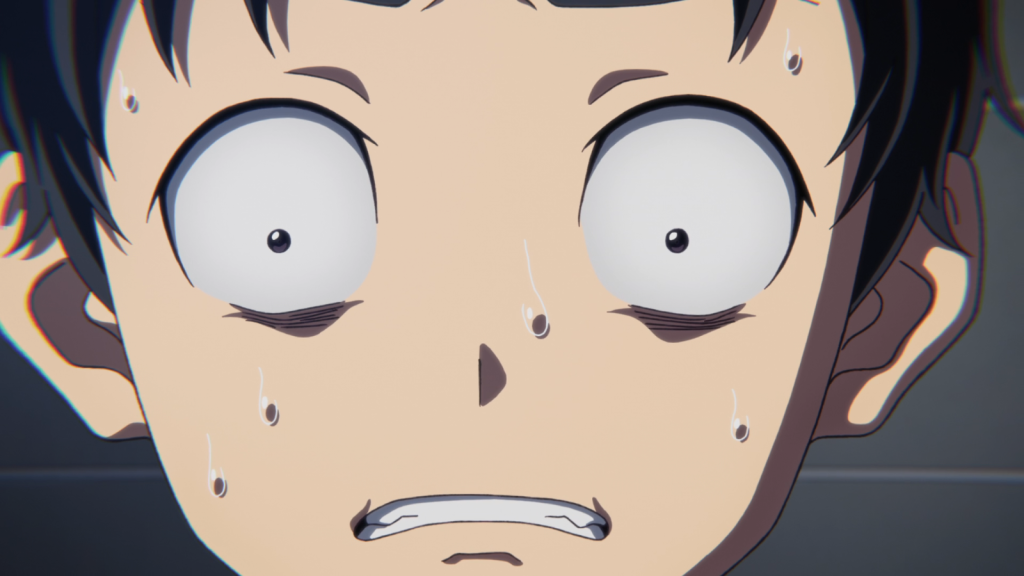
While they are on the road Akira and her friends meet Kosugi (Akira's former boss), who ruined the trailer and hurt Kenichiro, with the intention of repairing the damage and then making Akira work for him (he did it without knowing it was Akira because it is something he used to do with everyone since the pandemic) but when he realized that it was his former subordinate he was happy to humiliate and mistreat him again, before this Akira suffers a regression, letting Kosugi trample on his dignity, he begins to think again that he only exists to serve, that he cannot look beyond what he is ordered to do, and this is where something arises that catches my attention, seeing all this allows Shizuka delve into her own past where we see flashback images of her father speaking to her in almost the same way that Kosugi does to Akira, and this gives the girl the impetus to say a speech that makes Akira come out of that emotional trance that prevents her from seeing her own capabilities, which leads us to a wonderful character development
Mientras van por el camino Akira y sus amigos se encuentran con Kosugi (el antiguo jefe de Akira), quién arruinó la casa rodante y lastimó a Kenichiro, con la intención de reparar los daños y hacer que luego Akira trabajara para él (lo hizo sin saber que se trataba de Akira porque es algo que solía hacer con todo el mundo a partir de la pandemia) pero cuando se dio cuenta de que se trataba de su anterior subordinado estuvo feliz de volver a humillarlo y maltratarlo, ante esto Akira sufre una regresión, dejando que Kosugi pisoteé su dignidad, comienza pensar de nuevo que solo existe para servir, que no puede mirar más allá de lo que le ordenan a hacer, y es aquí donde surge algo que me llama la atención, ver todo esto le permite a Shizuka hurgar en su propio pasado donde vemos imágenes flashback de su padre hablándole casi en la misma forma en que Kosugui lo hace con Akira, y esto le da el impulso a la muchacha para decir un discurso que hace que Akira salga de ese trance emocional que le impide ver sus propias capacidades, lo cuál nos conduce a un maravilloso desarrollo de personajes
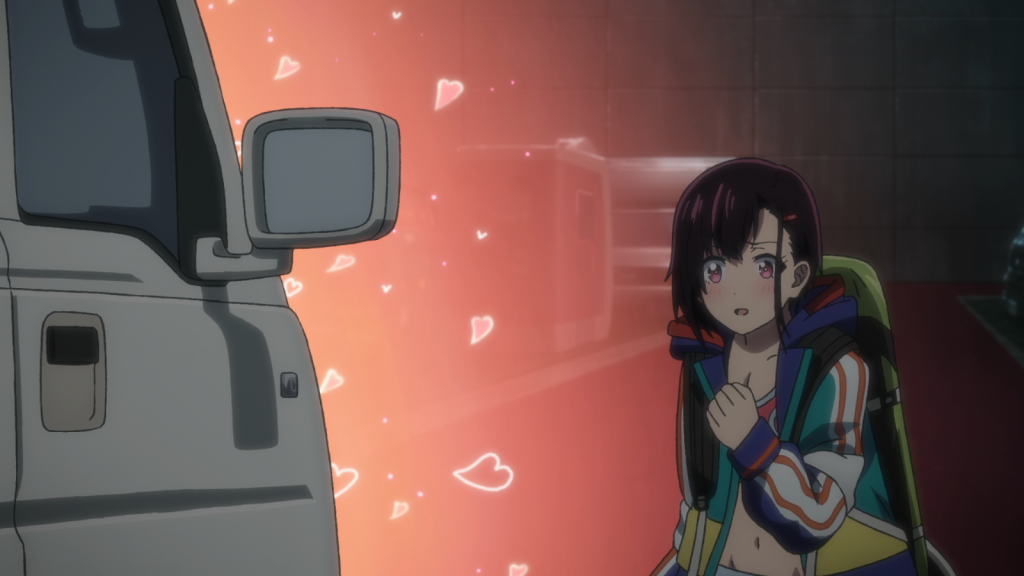
Why does this happen? Because many times we need another person to make us understand our own position, especially when you're used to thinking you can't decide for yourself. Shizuka was able to identify the manipulation because she herself was a victim of that same abuse, and she wasn't willing to tolerate it, she needed to vent, and her speech was decisive in activating the seed of the insurgency. But on the other hand, I'm pleasantly struck by the thought that this episode could be inspired by The Walking Dead (another series I love) since Kosugui acts the same way Negan did (intimidating the most vulnerable, with foul language, he even has a bat and a leather jacket 😁) but at the same time it reminds me of the police in season five, who used to hurt people with the intention of getting them to work for them later. All this confirms a very true statement: "It is better to fear the living than the dead," since it is the living people who act in a threatening manner out of greed or simply evil.
¿Por qué sucede esto? Porque muchas veces necesitamos que otra persona nos haga entender nuestra propia posición, sobre todo cuando estás acostumbrado a pensar que no puedes decidir por ti mismo, Shizuka pudo identificar la manipulación porque ella misma fue victima de ese mismo maltrato, y no estaba dispuesta a tolerarlo, necesitaba desahogarse y su discurso fue determinante para activar la semilla de la insurgencia. Pero por otra parte me llama la atención gratísimamente pensar que este episodio podría estar inspirado en The Walking Dead (otra serie que me encanta) ya que Kosugui actúa de la misma manera que lo hacía Negan (amedrentando a los más vulnerables, con un lenguaje soez, incluso tiene un bate y chaqueta de cuero 😁) pero al mismo tiempo me recuerda a los policías de la temporada cinco, los cuales acostumbraban lastimar a las personas con al intención de que luego trabajaran para ellos. Todo esto ratifica una afirmación muy cierta "Es mejor temerle a los vivos que a los muertos" ya que son las personas vivas quienes actúan de forma amenazante por avaricia o simplemente por maldad.
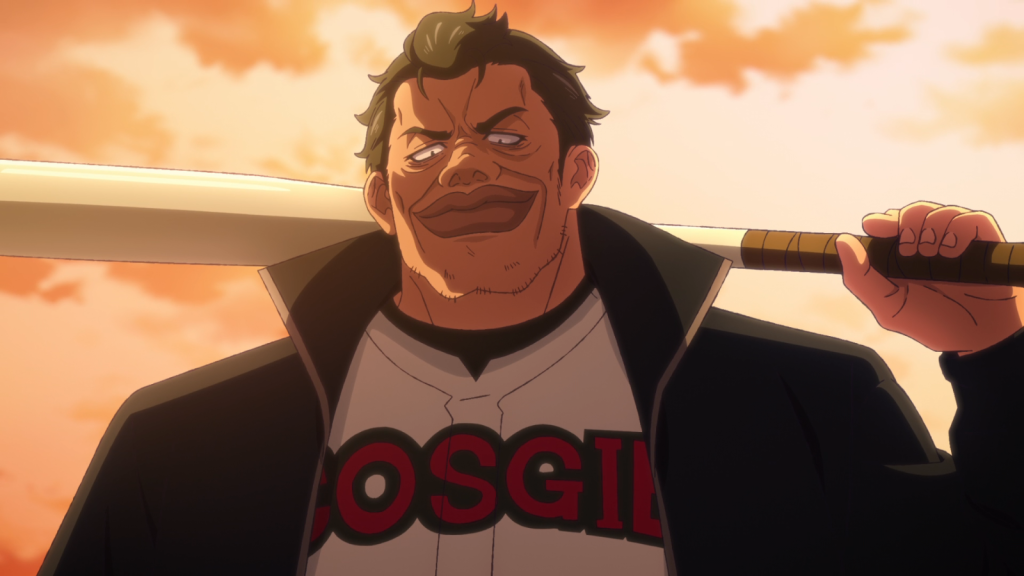
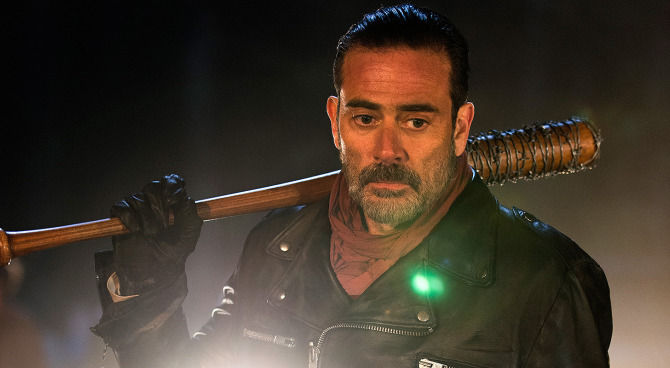
For this reason, I think Kosugi represents the traumas and fears we carry inside from the past, and that we must face in order to move forward and truly free ourselves. Who says we are not capable? When Shizuka showed Akira her own list, it reminded him of his achievements and projects. This reaffirmed that he had more than enough reasons to free himself and experience again the happiness of making his own decisions, doing what he wants, in other words, living fully without allowing others to take advantage of him.
Por esta razón pienso que Kosugi representa los traumas y miedos que llevamos en nuestro interior desde el pasado, y que debemos enfrentar para poder avanzar y liberarnos realmente ¿Quién dice que no somos capaces? Cuando Shizuka le mostró a Akira su propia lista le recordó sus logros y proyectos, esto le reafirmó que tenía razones de sobra para liberarse y volver a experimentar la felicidad de tomar sus propias decisiones, hacer lo que desee, es decir, vivir a plenitud sin permitir que otros se aprovechen de él.
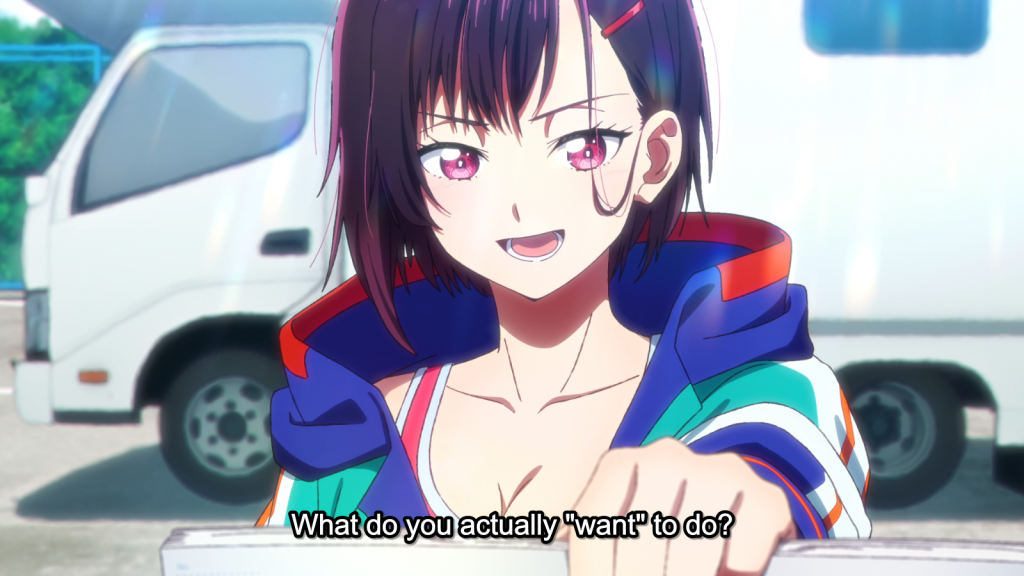
In conclusion, this episode is a metaphor for what freedom, determination and self-love mean, the discovery of one's true identity and the importance of learning to say no, so for everything explained here, in this post, this episode has become my favorite so far. What do you think?
En conclusión, este episodio es una metáfora de lo que significa la libertad, la determinación y el amor propio, el descubrimiento de la verdadera identidad y la importancia de aprender a decir no, así que por todo lo expuesto aquí, en este post, este episodio se ha convertido en mi favorito hasta ahora ¿Ustedes qué opinan?

(Image designed by me in canva editor)
Imagen diseñada por mi en el editor de Canva.